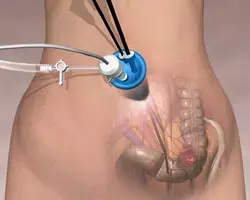- Home
- Medical news & Guidelines
- Anesthesiology
- Cardiology and CTVS
- Critical Care
- Dentistry
- Dermatology
- Diabetes and Endocrinology
- ENT
- Gastroenterology
- Medicine
- Nephrology
- Neurology
- Obstretics-Gynaecology
- Oncology
- Ophthalmology
- Orthopaedics
- Pediatrics-Neonatology
- Psychiatry
- Pulmonology
- Radiology
- Surgery
- Urology
- Laboratory Medicine
- Diet
- Nursing
- Paramedical
- Physiotherapy
- Health news
- Fact Check
- Bone Health Fact Check
- Brain Health Fact Check
- Cancer Related Fact Check
- Child Care Fact Check
- Dental and oral health fact check
- Diabetes and metabolic health fact check
- Diet and Nutrition Fact Check
- Eye and ENT Care Fact Check
- Fitness fact check
- Gut health fact check
- Heart health fact check
- Kidney health fact check
- Medical education fact check
- Men's health fact check
- Respiratory fact check
- Skin and hair care fact check
- Vaccine and Immunization fact check
- Women's health fact check
- AYUSH
- State News
- Andaman and Nicobar Islands
- Andhra Pradesh
- Arunachal Pradesh
- Assam
- Bihar
- Chandigarh
- Chattisgarh
- Dadra and Nagar Haveli
- Daman and Diu
- Delhi
- Goa
- Gujarat
- Haryana
- Himachal Pradesh
- Jammu & Kashmir
- Jharkhand
- Karnataka
- Kerala
- Ladakh
- Lakshadweep
- Madhya Pradesh
- Maharashtra
- Manipur
- Meghalaya
- Mizoram
- Nagaland
- Odisha
- Puducherry
- Punjab
- Rajasthan
- Sikkim
- Tamil Nadu
- Telangana
- Tripura
- Uttar Pradesh
- Uttrakhand
- West Bengal
- Medical Education
- Industry
Pelvic Floor Muscle Training effectively controls bowel symptoms after Total mesorectal excision for rectal cancer

Researchers from Belgium suggested in their study that pelvic floor muscle training can be used as an early, first-line treatment option for bowel symptoms as it helped in lower proportions and faster recovery post-surgery/stoma closure. The study results were published in the journal Annals of Surgery.
Low anterior resection syndrome (LARS) is a common and frequently and significantly encountered bowel symptom in Total mesorectal excision (TME) for rectal cancer (RC) patients. Even though pelvic floor muscle training (PFMT) is recommended in noncancer populations for treating bowel symptoms, this was not thoroughly investigated in RC patients. Hence researchers from Belgium conducted a study to investigate PFMT effectiveness on LARS in patients after TME for RC.
A multicenter, single-blind prospective randomized controlled trial was carried out by comparing PFMT intervention versus no PFMT for 1 month after TME/stoma closure. There were 50 patients in the intervention group and 54 patients in the control group. The primary endpoint was the proportion of participants with an improvement in the LARS category at 4 months. Secondary outcomes were continuous LARS scores, ColoRectal Functioning Outcome scores, Numeric Rating Scale scores, stool diary items, and Short Form 12 scores; all assessed at 1, 4, 6, and 12 months.
Results:
There was a statistically significant proportion of participants with an improvement in the LARS category after PFMT compared with controls at 4 months (P=0.0415) and 6 months (P=0.0091), but no longer at 12 months (P=0.3897).
| Duration | Intervention | Control |
| 4 months | 38.3% | 19.6% |
| 6 months | 47.8% | 21.3% |
| 12 months | 40.0% | 34.9% |
There was a significantly lower score for the following secondary outcomes at 4 months:
LARS scores | (continuous, P=0.0496) |
ColoRectal Functioning Outcome scores | (P=0.0369) |
frequency of bowel movements | (P=0.0277), |
solid stool leakage | (day, P=0.0241; night, P=0.0496) |
the number of clusters as derived from the stool diary. | (P=0.0369) |
No significant differences were found for the Numeric Rating Scale/quality of life scores.
Thus, pelvic floor muscle training should be offered as a first-line option for the improvement of bowel symptoms in all patients with bowel symptoms, due to the lack of side effects as it resulted in faster recovery of bowel symptoms up to 6 months after surgery/stoma closure.
Further reading: Asnong A, D'Hoore A, Van Kampen M, et al. The Role of Pelvic Floor Muscle Training on Low Anterior Resection Syndrome: A Multicenter Randomized Controlled Trial. Ann Surg. 2022;276(5):761-768. doi:10.1097/SLA.0000000000005632
BDS, MDS
Dr.Niharika Harsha B (BDS,MDS) completed her BDS from Govt Dental College, Hyderabad and MDS from Dr.NTR University of health sciences(Now Kaloji Rao University). She has 4 years of private dental practice and worked for 2 years as Consultant Oral Radiologist at a Dental Imaging Centre in Hyderabad. She worked as Research Assistant and scientific writer in the development of Oral Anti cancer screening device with her seniors. She has a deep intriguing wish in writing highly engaging, captivating and informative medical content for a wider audience. She can be contacted at editorial@medicaldialogues.in.
Dr Kamal Kant Kohli-MBBS, DTCD- a chest specialist with more than 30 years of practice and a flair for writing clinical articles, Dr Kamal Kant Kohli joined Medical Dialogues as a Chief Editor of Medical News. Besides writing articles, as an editor, he proofreads and verifies all the medical content published on Medical Dialogues including those coming from journals, studies,medical conferences,guidelines etc. Email: drkohli@medicaldialogues.in. Contact no. 011-43720751




